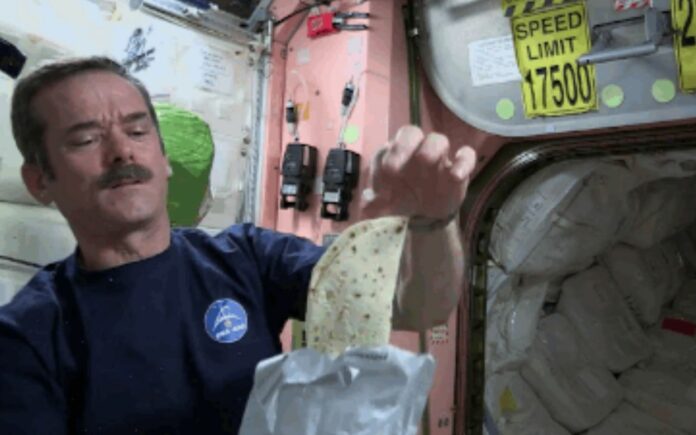Long-duration spaceflight is known to have negative effects on human health, yet what can be carried into space is constrained by spacecraft size and power requirements.
The food astronauts consume has the ability to counteract some of the detrimental health changes that occur during spaceflight, but it is also restricted by bulk, volume, shelf-life, and storage needs.
Grace Douglas and colleagues examined the effects of 2 diets on 16 people (10 males and 6 females) in the new research, which was published today in Scientific Reports.
Four people took part in each of the four 45-day missions in a closed room on Earth that was intended to imitate the constrained spaceflight environment and test the effectiveness of keeping various meals in such circumstances. Individuals consumed either an improved or a standard Astro-diet.
The improved diet included more fish and other forms of omega-3 fatty acids, as well as a greater number of servings of fruits and vegetables.
On the International Space Station, the standard spaceflight diet is used. It meets most of the requirements, but the authors say it could use more sources of fruits and vegetables and omega-3 fatty acids.
The improved diet included, among other healthy foods, more than six servings of fruits and vegetables per day and between two and three servings of fish per week.
All of the food was able to last for a long time at room temperature, which is a requirement for current space missions.
Before each mission, the food was kept in the chamber to make it feel like they were really in space. Through the course of the missions, people performed cognitive evaluation tests and gave samples of their saliva, urine, blood, and feces.
The researchers discovered that those who followed the improved spaceflight diet had more stable microbial populations, higher cognitive speed, accuracy, and attention, reduced cholesterol levels, and lower cortisol levels (which may indicate less stress).
The authors come to the conclusion that an improved spaceflight diet is good for people’s health and performance and may be good for astronauts even on short space missions.
Even though more research is needed to figure out how to make diets in space healthier, these results may help future space exploration missions decide how to use food resources.
Source: 10.1038/s41598-022-21927-5
